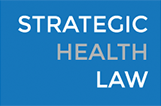New Administration’s Focus On Fraud Likely to Lead to Continued Scrutiny of Medicare Advantage Risk Adjustment

By Sandra Durkin
Health plans wondering what type of oversight to expect from the new administration can anticipate continued scrutiny of risk adjusted payments to Medicare Advantage organizations. While Trump has said that he will “love and cherish” Social Security and Medicare and does not plan on cuts to those programs, he more recently caveated that cuts could come if the administration finds abuse or waste. At the same time, Elon Musk and the purported Department of Government Efficiency (DOGE) are hunting for ways to slash spending in federal agencies and to eliminate fraud, corruption, and waste. As of February 5, the list of agencies working with DOGE includes the Centers for Medicare and Medicaid Services (CMS). In response the news coverage of the collaboration between CMS and DOGE, Musk tweeted, “yeah, this is where the big money fraud is happening.”
In light of this pressure to cut spending, it would be politically advantageous for the administration to use the existing tools at its disposal to fight healthcare fraud, chief among them being the False Claims Act. In 2024 alone, the Department of Justice recovered $1.68B from the healthcare sector. In its January 15 press release announcing these recoveries, the DOJ highlighted the importance of continuing to pursue overpayments made in the Medicare Advantage program, noting that that Medicare Advantage is the largest component of Medicare in terms of enrolled beneficiaries and federal dollars spent, and citing cases against large Medicare Advantage plans in which the DOJ has taken the position that certain MA plan risk adjustment coding initiatives (whereby MA plans document the relative health/sickness of their members for the purpose of estimating the cost of providing care) are tantamount to fraud.
Even in the event the Trump administration scales back DOJ prosecutions, the FCA’s qui tam provisions remain as an incentive to potential whistleblowers to file suit if they are uncomfortable with an MA plan’s risk adjustment activities or suspect that suspect that an MA plan is trying to game the risk adjustment system.
Though questions have been circulating about the future of the FCA after a federal district court ruled that the qui tam provisions are unconstitutional in U.S. ex rel. Zafirov v. Florida Medica Associates, Inc. (M.D. Fla. Sept. 30, 2024), the new Attorney General, Pam Bondi, testified in her confirmation hearing that she would defend the constitutionality of the FCA. Bondi also confirmed that she would devote resources to prosecuting false claims, including through relators.
Here are a few best practices for health plans to consider in this time when all eyes are on federal expenditures:
- Prioritize risk adjustment in organizational risk assessments.
- Build risk adjustment expertise in compliance and in-house legal departments, as well as in operational roles.
- Oversee risk adjustment program with emphasis on providers and vendors.
- Conduct compliance (and tone) review of all internal and external materials on risk adjustment, including provider contracts and communications with quality incentives.
- Develop a culture of compliance in risk adjustment that starts at the top, with compliance messages coming from business leaders.



